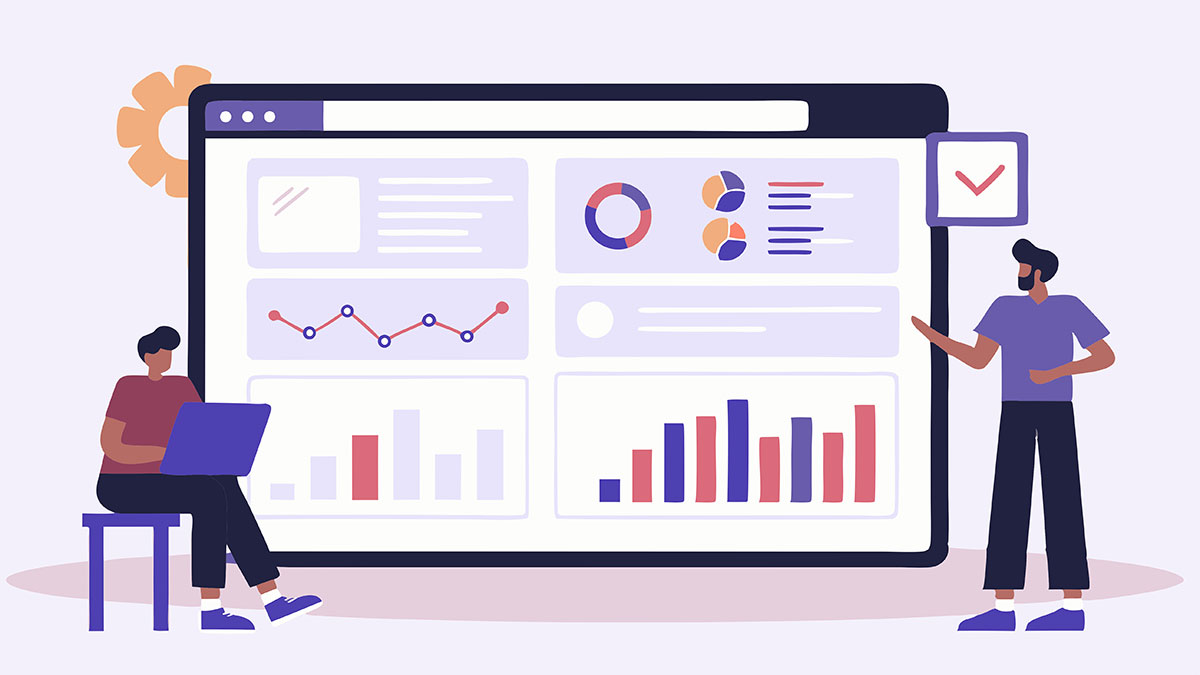When I started consulting, I leaned heavily on instinct, experience, and intuition. I’d built companies, managed teams, and led sales operations, so I thought I had a strong sense of what worked. And in many ways, I did. But as the business landscape grew more complex and technology advanced, I realized that relying solely on intuition wasn’t enough. The companies that grew the fastest and most sustainably were the ones leaning into data.
That’s when my approach to consulting changed. Today, I believe data-driven consulting is the single most powerful tool for growth. It doesn’t replace human insight, but it sharpens it. It gives you a clearer picture of where you’re winning, where you’re wasting resources, and where the real opportunities lie.
If you’re serious about growing your business, you need more than gut feelings. You need data—and the ability to turn it into action.
The Limitations of Guesswork
In my early days of consulting, I often sat in boardrooms where decisions were made based on assumptions. Leaders would say things like, “I think our customers prefer this,” or “It feels like this market is slowing down.” Sometimes they were right, but many times they were way off.
Guesswork might get you started, but it won’t take you far. Without hard data, you’re essentially gambling with your strategy. That’s especially risky in industries like insurance and real estate, where competition is fierce and margins can be thin.
I’ve seen businesses invest heavily in marketing campaigns that never connected with their audience, all because they were built on hunches. I’ve also seen companies cut back on areas that were actually profitable because they didn’t have the data to prove their value. Both mistakes could’ve been avoided with a data-driven approach.
What Data Really Does
Data does three things really well: it tells the truth, it shows patterns, and it guides action.
First, it tells the truth. Numbers don’t have an agenda. They don’t sugarcoat results. If your sales team is underperforming, or if customer churn is high, the data will show it. That honesty is sometimes uncomfortable, but it’s necessary.
Second, data reveals patterns. Over time, you start to see the “why” behind the numbers. Maybe your leads convert better on weekends, or maybe certain marketing channels bring in higher-value customers. When you identify those patterns, you can double down on what works and cut back on what doesn’t.
Finally, data guides action. Good consulting isn’t just about analysis—it’s about turning insights into strategies. That’s where the magic happens. By combining raw data with experience and context, you create actionable steps that lead directly to growth.
A Real-World Example
I worked with a company that was convinced their growth problem was marketing. They thought they weren’t generating enough leads. But when we dug into the numbers, the truth was different. Their lead volume was strong—but their conversion rates were weak.
The data showed that most leads were dropping off after the first consultation. That told us the problem wasn’t marketing—it was sales follow-up. Once the company shifted resources into training and refining their sales process, their revenue jumped within months.
That’s the power of data-driven consulting. It helps you pinpoint the real issue instead of wasting time and money chasing the wrong problem.
Why Data and People Go Hand-in-Hand
Now, I’m not saying data replaces people. Far from it. Data gives us the “what,” but people provide the “why” and “how.”
As a consultant, my role is to interpret the numbers and translate them into strategies that make sense for the business and its culture. A spreadsheet can tell you churn rates, but it can’t tell you how your employees feel or why your customers leave. That’s where human insight matters.
The best results come when data and people work together. Numbers point the way, and experience turns them into meaningful action.
Building a Data-Driven Culture
One of the most important lessons I’ve learned is that data isn’t just a tool—it’s a mindset. To get the most out of it, you need a culture that values transparency, measurement, and accountability.
That means tracking the right metrics, sharing results openly, and making decisions based on evidence rather than ego. It means empowering teams to test ideas, measure outcomes, and adapt quickly.
When companies embrace this culture, they stop fearing data and start using it as a growth engine. That’s when consulting truly transforms a business.
As technology continues to evolve, the role of data in consulting will only grow. Tools like artificial intelligence and predictive analytics are making it easier than ever to identify trends and forecast outcomes. But at the end of the day, it’s not about having the fanciest tools—it’s about knowing how to use them.
For me, data-driven consulting isn’t about numbers for the sake of numbers. It’s about helping businesses grow smarter, faster, and more sustainably. It’s about cutting through noise and focusing on what really matters. And most importantly, it’s about giving leaders the confidence that their decisions are grounded in truth, not guesswork.
If you’re an entrepreneur or business leader, here’s my advice: don’t ignore your gut, but don’t rely on it alone. Pair your intuition with hard data. Build systems that track results. And most importantly, work with people who know how to interpret the numbers and turn them into action.
Because in today’s world, data isn’t just information—it’s a competitive advantage. And when used the right way, it’s the secret weapon that can take your business from good to great.
